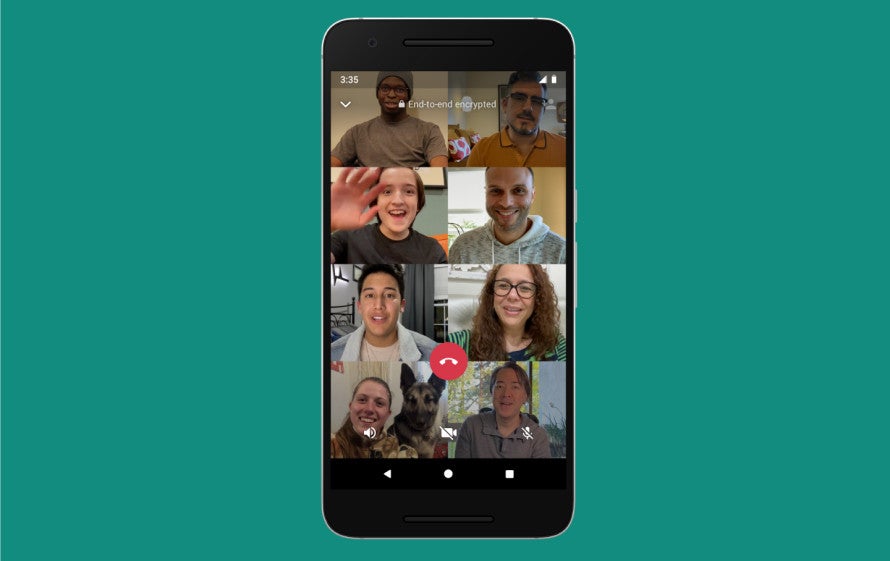Forget Houseparty, WhatsApp group calls can now squeeze in twice as many people

WhatsApp has officially doubled its group video call limit to eight people − something that should worry Zoom and Houseparty.
Previously, WhatsApp group calls only supported a maximum of four people (including you), but this move that could make it the video calling app of choice for most people who are stuck at home, missing friends and family. In order to use it, everyone in the call needs to have updated to the latest version of WhatsApp.
Related: How to video call on WhatsApp
“The Covid-19 pandemic has meant that many of us are isolated from friends and family. As a result, we see that people all over the world are turning to voice and video calling on WhatsApp more than ever before,” WhatsApp wrote in a blog post.
The company says that users have spent an average of 15 billion minutes per day in WhatsApp calls during April, “well above a typical day before the pandemic”.
The blog post continues: “We have built group calling in a way that makes it available for as many users as possible, including people on lower-end devices and slow network conditions.”
Eight is still far from the most generous group video calling limit out there, but WhatsApp offers an important layer of protection that the likes of Zoom and Houseparty don’t.
Just like regular WhatsApp messages, WhatsApp group calls are end-to-end encrypted, which means that only you and the people you’re calling know what’s being said or shared.
Conversations that take place over Zoom and Houseparty aren’t end-to-end encrypted. This means that, if they were to be compelled to, Zoom and Houseparty would have the ability to hand over the content of users’ calls to governmental authorities or law enforcement.
That’s a very big deal, especially because Zoom and Houseparty have come under a lot of scrutiny for various security- and privacy-related issues over the past several weeks.
At the end of March, some Houseparty users claimed that creating an account for the service had coincided with their accounts on other platforms, such as Spotify and Netflix, falling prey to hackers.
Houseparty immediately denied any connection, but the tone of its response felt quite crude, rather than reassuring.
“All Houseparty accounts are safe − the service is secure, has never been compromised, and doesn’t collect passwords for other sites,” the company said when the allegations came to light.
It also started offering a significant amount of money to anyone who could prove that the whole affair was “a paid commercial smear campaign”.
Related: How to delete your Houseparty account
Zoom, meanwhile, has dropped the ball so many times over recent weeks, including falsely claiming calls were end-to-end encrypted and secretly sending users’ data to Facebook. However, it is now trying to fix its many issues.


